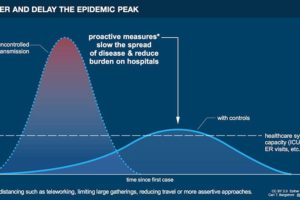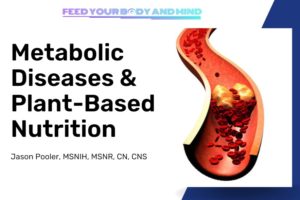Today we are going to dip into the realm of your stress response and what it has to do with your health. I have wanted to write about this for a while now but the problem I kept having is I would get hung up on where to start and when to stop. There is almost no system in the body that is not impacted by our stress response. This includes all the systems in our body involved with emotion, hunger, satiety, and how we perceive the world in general. This makes for a hefty topic. So where to start? How about with some of the basics.
I will start with an introduction to the stress response. The simplest explanation is that stress has to do with our fight, flight, or freeze response (FFF). During our evolutionary history the FFF served a vital role in keeping us safe enough to bear children and pass our genes to the next generation. Today however, this response is chronic as our biology can’t tell the difference between a threat such as a wild animal or an attacker, and the threat we perceive at work when faced with the fear of missing out on a promotion for instance, or engaging in an argument with a loved one.1

When faced with a stressor the body prepares for action to either fight the threat, escape the threat, or prepare the body to freeze until the threat has passed (which does require a significant amount of energy and resources compared to resting). Regardless of which action one typically takes, the physiological response is the same. The nervous system takes action in the brain to jump start the release of (glucocorticoid) hormones by sending hormone messages to our body (a very simplified explanation for a complex process involving hormones activating endocrine organs [glands] which then send out their own hormones to the rest of the body). The end result of these hormones is that they will do things such as cause the blood vessels to restrict and contract, putting more pressure on vessels as they force blood and the glucose and nutrients it carries into muscles. This action alone contributes to a major impact, that when induced chronically, leads to the long term effect of the body being increasingly unable to dilate blood vessels. Many of the changes that occur during the FFF do so because of cortisol, aka the stress hormone, which among other things is involved in anti-inflammatory actions, helping to regulate blood glucose levels, controlling blood pressure, activating the central nervous system, regulating the metabolism of fat, protein, and carbohydrate metabolism, and helping to regulate immune function.5
Other impacts occur as well. With the body sending blood to the muscles for action blood is diverted away from digestion. When this occurs chronically it means the body has a more difficult time utilizing the nutrients in the food we eat. Meanwhile, our bodies probably are not making use of all the glucose the body is producing to face the perceived threat, which will lead to insulin resistance over time and increase one’s risk of type 2 diabetes.6,7 Chronic stress also has long term impacts on our immune system, as well as our brain. With blood being sent to the extremities for action, thinking becomes more difficult. In our modern society this has the unfortunate consequence of making the situation worse as most of the threats we face today are social threats that don’t require physical action. Since each person has different genes that help to dictate minor differences in this general process and since we all have different environmental exposures that also impact this process, we all respond differently and thus develop different signs and symptoms with chronic stress.
Stress comes from a variety of places in our life such as work, one’s finances, stress associated with racial discrimination, or stress associated with mental health issues (anxiety, depression, etc., and the stigma that goes with such a diagnosis), the list goes on and on.2 Since it’s so prevalent in our lives now, it’s also import to mention a brand new arena of stress brought on by the influence of social media and “addiction” to the internet. One of the problems associated with social media stress revolves around what some have dubbed FOMO (fear of missing out).3,4 This is the stress one gets when one fears not knowing about the most trendy of topics bombarding one’s social networks from one day to another. It also includes the fear that arises from all the expectations we think are placed on us by our friends and family on social media. We have never been more connected, and for many, if of most of us, that is not necessarily a good thing. This is especially true when there are no boundaries between the real world we live in and the digital world, that increasingly represents how we want to be perceived rather than who we really are. The stress related to FOMO is intense enough that some studies have shown withdrawal symptoms, similar to a variety of other addictions, when smartphones and computers are taken away.4

If you look on the web you can find a few articles about the stress response. Typically these articles talk about adrenal fatigue, which is a collection of signs and symptoms caused by the decreased ability of the adrenal glands to respond adequately to stress.5 Other names for adrenal fatigue include adrenal insufficiency, adrenal stress, adrenal exhaustion, adrenal burnout or adrenal imbalance. No matter which term is used they typically refer to a collection of symptoms including: excessive fatigue, exhaustion, hair loss, poor digestion, hormone imbalance, low immune function, slow recovery from illness, inability to concentrate, and inability to cope with stressors.5 Ultimately adrenal fatigue manifests when one’s body is unable to compensate for and recover from the stressor(s). As we discussed above, the FFF will set off cortisol (which has a variety of necessary functions in healthy individuals such as being intricately involved in how our bodies wake up in the morning to name one) which can lead to a weakening of the gastrointestinal tract, thus leading to poor digestion, inflammation, and other digestive disorders. As you can see if your diet is already poor chronic stress, with or without adrenal fatigue, will make it extremely difficult for you to make use of the nutrients you are taking in.
So what does this all mean for you?
The biggest take away from this article should be that stress has long term impacts on the body that eventually catch up with us. Even if a person is blessed with “good” genes, the impact of stress can wipe out this entire advantage. This means that no one is immune to the impacts of chronic stress though there are lifestyle practices that can decrease it.
The first step is learn proven stress management techniques such as meditation, yoga, relaxing music, tai chi, sleep hygiene leading to a good night’s sleep, etc. Another step is to make dietary adjustments to not only fuel your body but to nourish it as well, as there is much more to nutrition than carbs, fat, protein and calories. Even if you have enough energy, if you don’t have adequate vitamins and minerals, antioxidants, and other healing plant chemicals, you can still suffer from a lack of nutrients over time. While those suffering from chronic stress won’t want to hear it, physical activity is also important in helping our bodies both recover from acute stress and become more resistant to chronic stress over time. The one caveat with this is that physical activity can also be part of the problem if done at high intensity for long periods without proper support though nutrition and periods of relaxation. Even athletes have an off season where they rest, relax, and let their bodies recover from the intense training. For those experiencing chronic stress, physical activity can come in the form of relaxing walks, relaxing gardening, or a general easing off the gas pedal of intensity during workouts.
For many of us, the best way to deal with stress is by saying no. The same biological drives that fuel FOMO often fuel addiction to work, church, volunteering, or other responsibilities. While I’m not saying turn your back on these responsibilities, we often need a break, just like an athlete needs an off season. This also applies to work as well, where some go above and beyond till they don’t and then crash. All of our responsibilities require balance. No amount of a healthy diet, supplements, or herbs are going to solve the problem of over taxing yourself with responsibilities or unnecessary worrying about them. I understand the drive to do your best, but often that comes at the cost of our long term psychological and physical health. While hospitals can keep us alive longer, they often do so by giving us a low quality of life while they keep you alive. I can’t stress enough the importance (pun intended) of filtering out those responsibilities and friends that truly provide value to your life by helping you be a happier more compassionate human.
This won’t be my last post on the stress response as I genuinely believe that stress is one of the biggest issues with our health today. As new research comes in I look forward to weeding out the junk science and taking note of conflicts of interest in research. I do this to get to the solutions that can provide real hope and healing for those dealing with chronic stress while passing on the latest fads that turn out to be more sales pitch and hyped up marketing than anything else.
References:
1. McEwen B. S. (2017). Neurobiological and Systemic Effects of Chronic Stress. Chronic stress (Thousand Oaks, Calif.), 1, 10.1177/2470547017692328.
2. Mei-Yan Liu, Na Li, William A. Li & Hajra Khan (2017) Association between psychosocial stress and hypertension: a systematic review and meta-analysis, Neurological Research, 39:6, 573-580.
3. Franchina, V. et al. (2018). Fear of Missing Out as a Predictor of Problematic Social Media Use and Phubbing Behavior among Flemish Adolescents. International journal of environmental research and public health, 15(10), 2319. doi:10.3390/ijerph15102319
4. Eide, T. A., Aarestad, S. H., Andreassen, C. S., Bilder, R. M., & Pallesen, S. (2018). Smartphone Restriction and Its Effect on Subjective Withdrawal Related Scores. Frontiers in psychology, 9, 1444. doi:10.3389/fpsyg.2018.01444
5. Mahan, L. K., & Raymond, J.L. (2017). Krause’s food and the nutrition care process. (14th ed.). St. Louis, MO: Elsevier Saunders.
6. Hilliard, M. E., et al. (2016). Stress and A1c Among People with Diabetes Across the Lifespan. Current diabetes reports, 16(8), 67. doi:10.1007/s11892-016-0761-3
7. Harris, M. L., et al. (2017). Stress increases the risk of type 2 diabetes onset in women: A 12-year longitudinal study using causal modelling. PloS one, 12(2), e0172126. doi:10.1371/journal.pone.0172126








